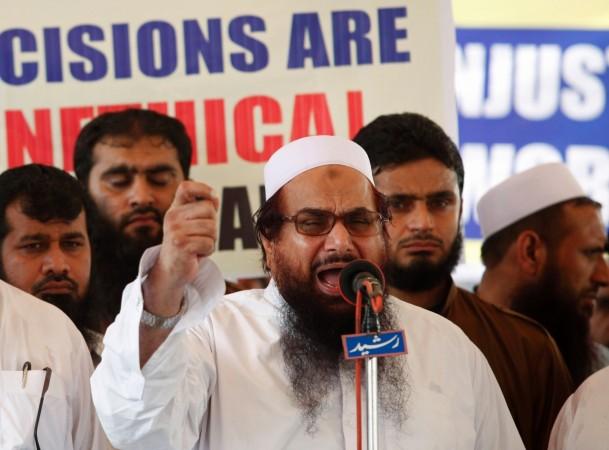
Pakistan officials announced a crackdown on the Lashkar-e-Taiba (LeT) chief and 26/11 militant mastermind, Hafiz Saeed, on charges of terror financing on Wednesday, July 3. The move comes in the midst of international pressure on curbing terrorism in the country.
The Counter-Terrorism Department (CTD) of Pakistan has launched 23 cases against Saeed and his 12 aides for using five trusts to collect funds for LeT's terrorism-related activities. The trusts listed are Dawat Irshad Trust, Moaz Bin Jabal Trust, Al-Anfaal Trust, Al-Madina Foundation Trust and Al-Hamd Trust, reported India Today.
Other LeT-linked charity organisations Jamaat-ud-Dawa (JuD) and Falah-i-Insaniat Foundation (FIF) were also investigated. The organisations are banned by the government of Pakistan and the United Nations Security Council (UNSC).
To evade the ban, the names of the organisations were changed to Al-Madina and Aisar Foundation, according to a report by Daily Times.
"All the assets of these organisations and individuals will be frozen and taken over by the state," said senior security official on conditions of anonymity.
LeT is banned in India under the Unlawful Activities (Prevention) Act. The United States, the United Kingdom, European Union, Russia, Australia, and the United Nations Security Council Resolution 1267 have banned the organisation under the Al-Qaeda Sanctions List.
Last month, Pakistan had claimed to have shut down 13 militant training camps run by Jaish-e- Mohammed, Lashkar-e-Taiba and Hizbul Mujahideen in various parts of Pakistan occupied Kashmir.
The move was reportedly made to avoid being blacklisted by the international terrorism watchdog agency, Financial Action Task Force (FATF). Pakistan was 'greylisted' by FATF last year and was recently given an October 2019 deadline to control the rampant money laundering and terror financing in the country.
Although the terror outfit is banned in Pakistan; countries like India and France, and some think tanks have claimed that Pakistan's intelligence agency, Inter-Services Intelligence (ISI), provides support and protection to the militant organisation.
LeT has played a crucial role in instigating tensions between Indo-Pak relations. After the Pulwama attack, India has reaffirmed its stance of zero tolerance for cross-border terrorism.









!['Had denied Housefull franchise as they wanted me to wear a bikini': Tia Bajpai on turning down bold scripts [Exclusive]](https://data1.ibtimes.co.in/en/full/806605/had-denied-housefull-franchise-they-wanted-me-wear-bikini-tia-bajpai-turning-down-bold.png?w=220&h=138)



